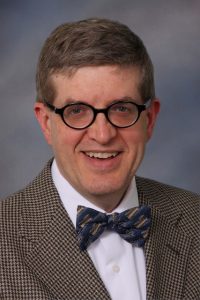
June 13, 2017 Associate medical dean ready to bring opportunities for rural medicine, global experiences to Tri-Cities
By Maegan Murray, WSU Tri-Cities
It may be two years before Washington State University Tri-Cities has Elson S. Floyd Medical School students based on its campus, but Farion Williams, the new associate dean of medicine for the Tri-Cities campus, is already ramping up for the students who will study in the mid-Columbia region for their final two years of the WSU medical program.
“The Tri-Cities is in a very unique position in Washington state, with its variety of health care providers and professionals, its opportunities with organizations like the Pacific Northwest National Laboratory, and its potential for providing rural healthcare in eastern Washington and underrepresented communities,” Williams said. “I’m excited to be a part of getting the new Elson S. Floyd College of Medicine up and running, and I’m excited to join the team at WSU Tri-Cities.”

Farion Williams – WSU Tri-Cities associate medical dean
Williams, who begins his new role on June 26, plans to spend his first weeks on the job identifying and training faculty and helping to establish the curriculum, as well as meeting with local physicians and representatives from different medical providers to gain an understanding of the health care climate in the region.
“The Tri-Cities is a new community for me, so I look forward to meeting with the physicians and medical providers and understanding the different hospitals in the community,” he said.
A graduate of the University of Texas Medical School at San Antonio, Williams completed his residency training at the University of Kansas Medical Center where he served as the program’s chief resident in his final year. He began his first practice through the University of Texas Medical Branch in Dickinson, Texas. Following his time at UTMB, he became the associate residency director for family medicine at the Baylor College of Medicine, and most recently served at the University of Illinois College of Medicine at Rockford, where he held many roles – including residency program director and assistant dean for graduate medical education.
Williams’ medical resume includes extensive experience serving and developing programs for rural and underserved populations – a focus he looks forward to continuing at WSU.
“The mission of Elson S. Floyd College of Medicine is really important because there are many communities that lack resources for health care, and when their access is limited, their care is limited,” he said. “Once students have opportunities to train in rural communities, they are more likely to want to practice in rural communities, which is why it’s crucial that we establish those opportunities here in Washington state. I think it is very forward-thinking that WSU is focusing their program to help address this issue.”
In addition to his work stateside, Williams hopes to offer a study abroad opportunity that he has been a part of for several years at the University of Illinois. Through the program, medical students travel to Christian Medical College in India where they provide medical care, work with the local physicians and learn about how the health care system works within the country.
“The study abroad program gives students an opportunity to experience the healthcare systems in another country, how health care is delivered, how different national policies affect the way healthcare is delivered, and how the populations are different,” he said. “Students see that a lot of good can be done with limited resources and develop a perspective of compassion and empathy for people.”
Williams worked with the department of family medicine faculty at the medical college in India to help them gain accreditation for their residency program through the Medical Council of India in March 2017.





